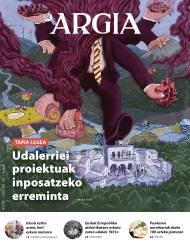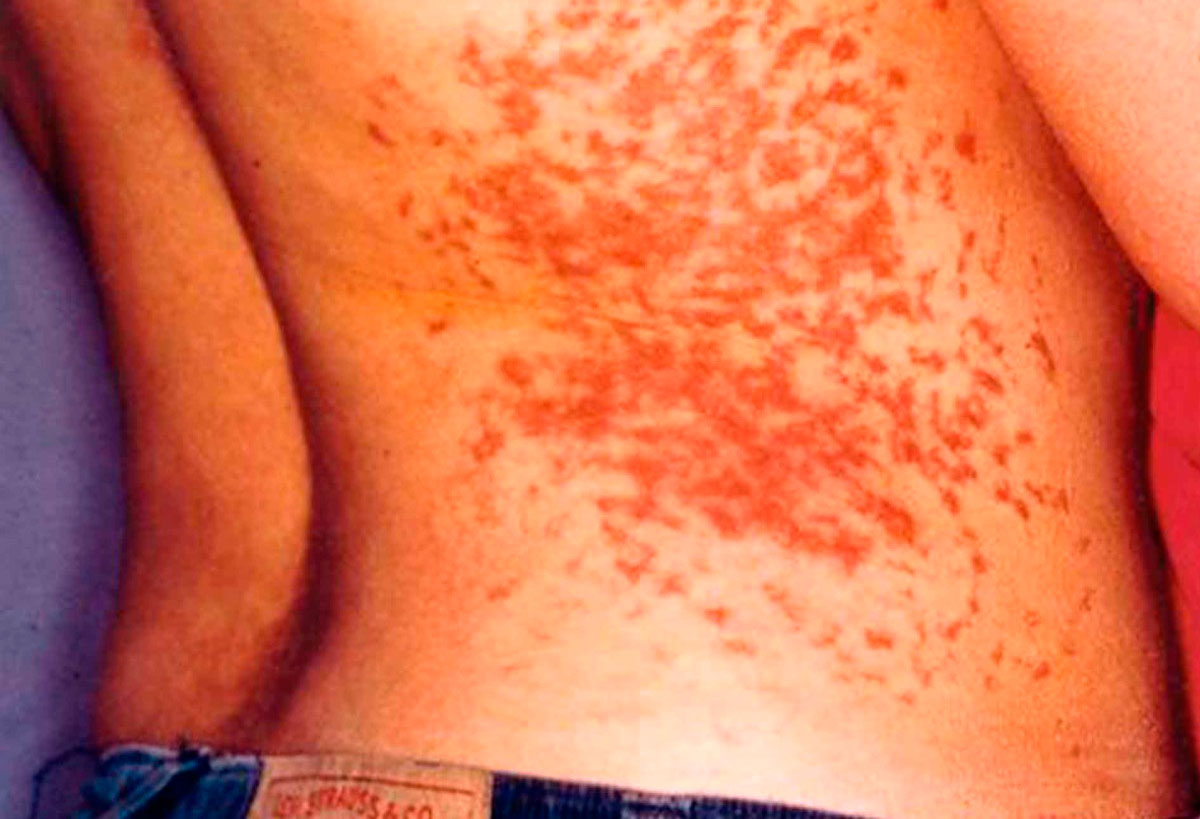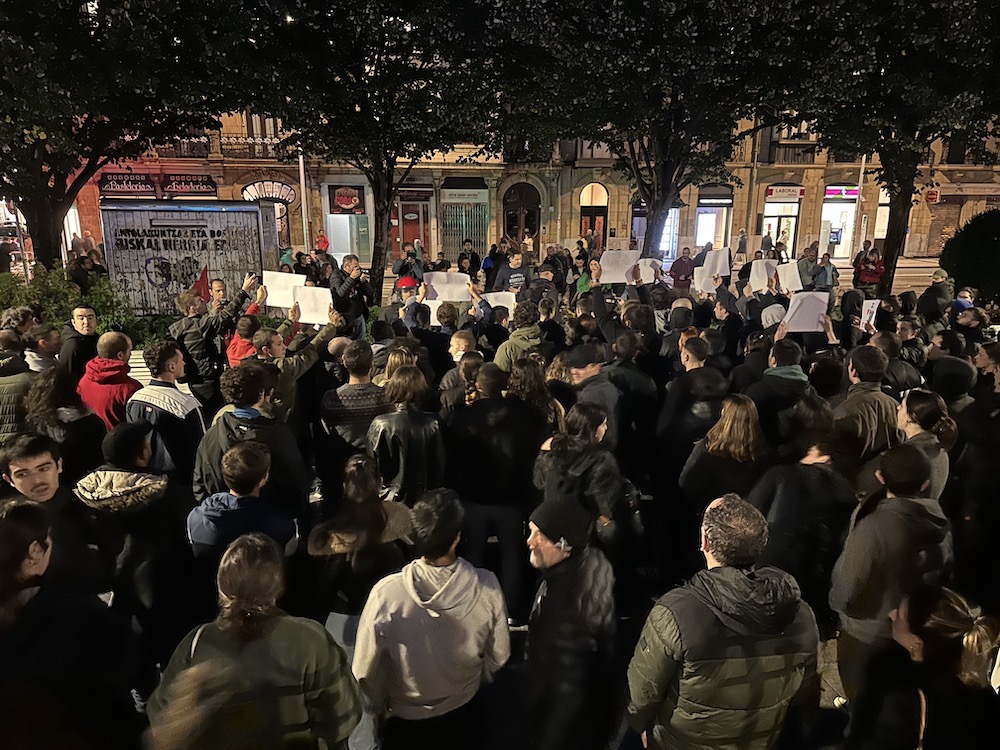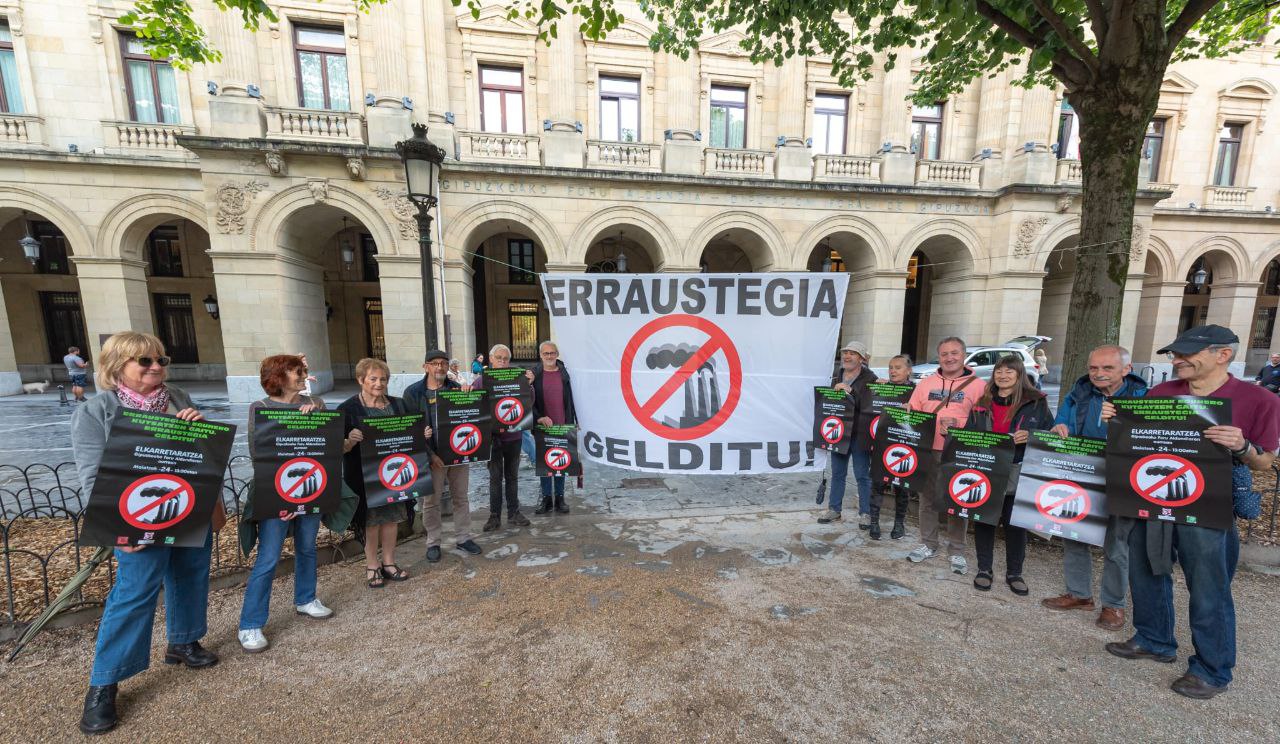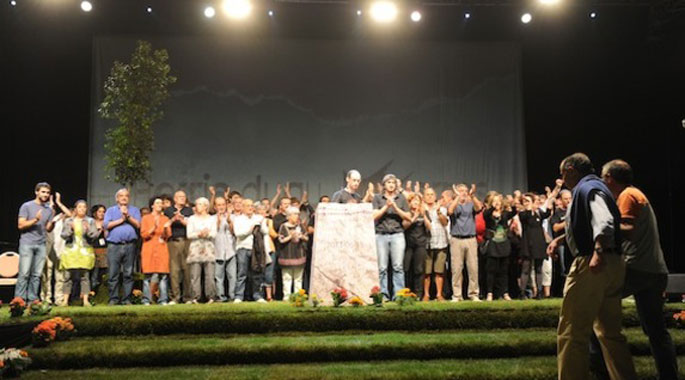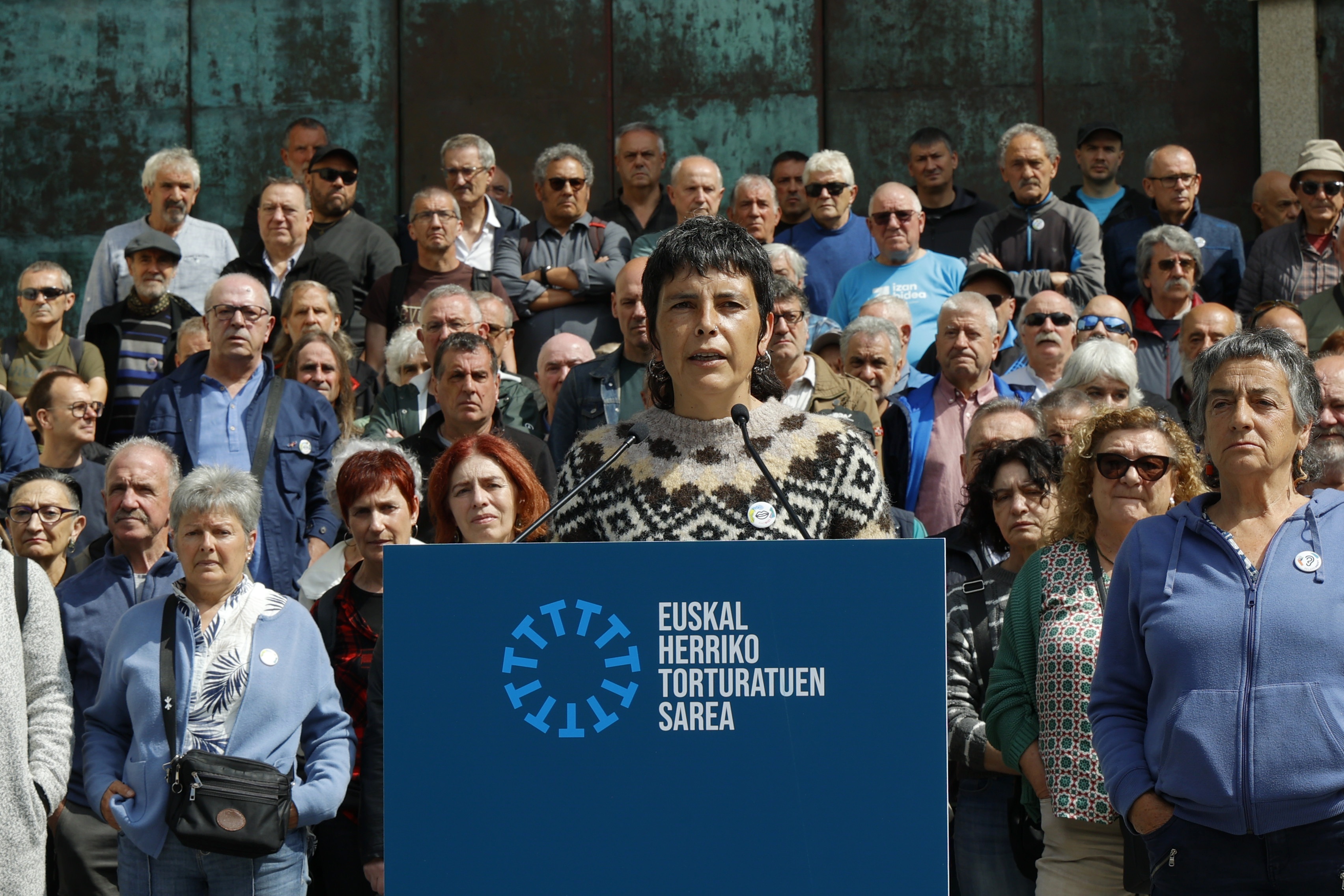“In Bergara they could apply the Tapia Law to impose the incinerator”
- The company Valogreene Paper wants to set up a factory in Bergara to collect waste paper and burn it with pyrolysis. Citizens have been organised against; the city council has refused authorisation; the government supports the project. We have talked to Piter Encinas, of Ekologistak Martxan, who also works on the Larramendiko Arnasa platform, which was created against the Bergara project. Can Bergara be a good example to reflect on the possible consequences and risks of the Tapia Law?

The project is supported by the Euskadi Paper Cluster. In the past, the waste was dumped in the Zaldibar landfill and now needs ‘solutions’. In June Valogreen presented the project to implement the plant in the industrial estate Larramendi of Bergara. In July the City Council granted the authorization, but in November it annulled it for two reasons: on the one hand, the report submitted by the company indicated that the activity did not correspond to that contemplated in the project to obtain the integrated environmental authorisation, and on the other hand, that the General Plan of Urbanism of Bergara does not permit any waste management activity. The Government has approved integrated environmental authorization and supports the project. The City Council recently announced that it will appeal.
Ekologistak Martxan's billiards called Encinas to warn that there was an incinerator project in Bergara. By then the city council had already authorized the company, “because in the report there were lies, among other things,” says Encinas. He met with several Bergara neighbours and contacted the mayor to share information. The citizens' initiative "Larramendiko Arnasa" was officially launched in March, but the citizens opposed to the project began to work earlier. “We have put the greatest strength in reporting,” says Encinas. Over 4,000 signatures have gathered round tables and conferences, mobilizations. As for the City Hall, in addition to withdrawing the authorisation, in December the plenary adopted a motion against the draft, with the votes in favour of the EH Bildu and Elkarrekin Ahal groups, and against the PNV and the PSE.
Conflicting views
We asked the parliamentarian and member of the Euzkadi Buru Batzar of the PNV, María Eugenia Arrizabalaga, about the project and conflict in Bergara. He denies that the company has deceived the City Hall in the report and denies that the plant that he wants to install is an incinerator, “even if some want to think like this”. The process of information, mobilization and positive citizen incidence for Encinas is absolutely negative for Arrizabalaga. “They always say the same,” he says of the environmental movements. In the case of Bergara, he says that at first the city council saw it “all very well”, “then some ecologist started shaking the margins, and that has conditioned the opinion of the municipal government.”
.jpg)
The supporters of the project say that it is a pyrolysis plant, and that pyrolysis is not incineration; the opponents say that pyrolysis is an incineration, of another kind, but that it is an incineration, and that it produces pollution – it is this last opinion that is defended by Arnasa de Larramendi, Ekologistak Martxan, Greenpeace or the alliance. Supporters highlight the jobs that would be created, the opposite of ecology and health. The supporters are supported by the government, the opponents are the city council. Similar situations have lived, lived and will live in other projects throughout the community. How can the Tapia Law influence such a context?
Project Bergara IPGP?
“Tapia Law will have a lot of weight,” says Encinas: “If the City Hall says, “we don’t want this,” but if the government gives it the highest public interest statement...” In the case of Bergara the project promoter is a private company, so the current Tapia Law would not apply, but with the new adaptation that the Government wants to make, which would open the doors to private promoters, it would then be possible. If it happened, the Tapia Law would apply to a city hall that in November passed a motion against the Tapia Law. Arrizabalaga says he does not know whether the government is going to appoint IPGP to the Bergara project: “I have no clue. What we are thinking at the moment is industrial waste.” Bergara is not a landfill, but an industrial waste management infrastructure.
"City halls and citizens have their hands tied. We just have to protest and organize ourselves.” Piter Encinas.
Demonstration in Gasteiz
The environmental movement is the only popular movement that has been mobilized against the law. Encinas stresses that the Tapia Law makes harmful projects difficult in institutions. “It’s undemocratic. They have created it to put an end to the obstacles, the municipalities and the citizens have their hands tied. We just have to protest and organize ourselves.” In December, Yellow Fever concentrated the movement in Bilbao demanding “respect” the word “people”. The Araba Bizirik platform is the most prominent in the complaint. “[PNV] He defends the powerful, disregards our rules and instruments of participation and nullifies local autonomy and sovereignty,” he said. He has made mobilisations and initiatives against the Tapia Law and has organised a demonstration for 14 May in Gasteiz.
* Report composed of three other articles:
- Tapia Law: Government more power, municipalities less.
- Eudel on the Tapia Law: "PGIPs are imposed on municipalities with little participation".
- Analysis: Tapia Lege: tool to enable or deactivate conflicts?
Historically, a court of the Spanish Monarchy passed the following resolution: "The officers in charge of the custody of Iratxe Sorzabal applied electrodes to force him to testify, which constitutes a flagrant violation of his fundamental human rights." In other words, after the... [+]
Wokismoari begiratu beharrean antiwokismoari so jarri gara. Antiwokistek sorturiko multzoa delako wokismoa, eta antiwokismorik ez balego ez legokeelako wokismorik. Multzo eklektiko horri begiratu, eta laster ohartzen gara eskuin muturrak hastio duen guzia barnebiltzen duela:... [+]
Politikan, gizartean eragiteko nahiaren eta identitate zeinuetan sakontzearen arteko tentsioa ekidinezina da. Zabaltzearen eta norberaren ezaugarriak indartzearen arteko hartu-emana politikaren adierazle baita. Bi arloak lortu nahi izaten dira, eta elkarren artean elikatzen... [+]
I have had days of visits, experiences and reflections. There I am, trying to make intersectionality a reality, trying to connect struggles, trying to say all the points as bertsolaris, without pounding...
From the community radio station LoRa where I work, we organized a round... [+]









